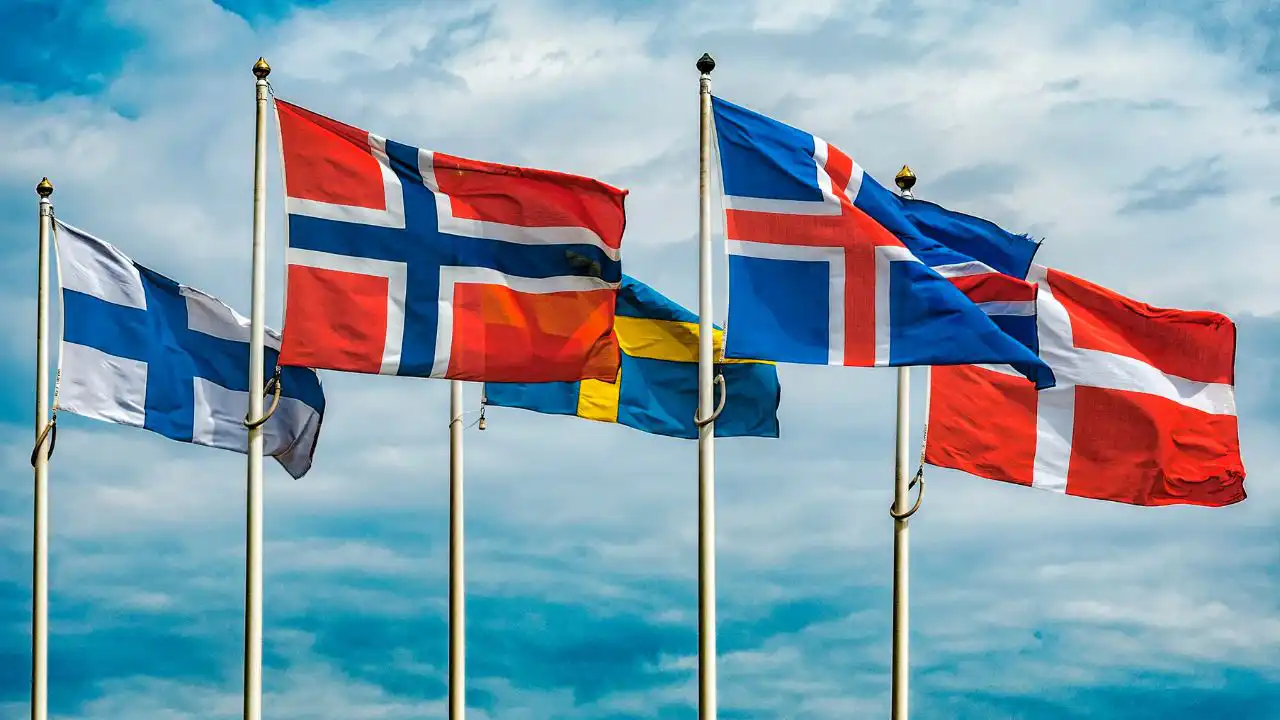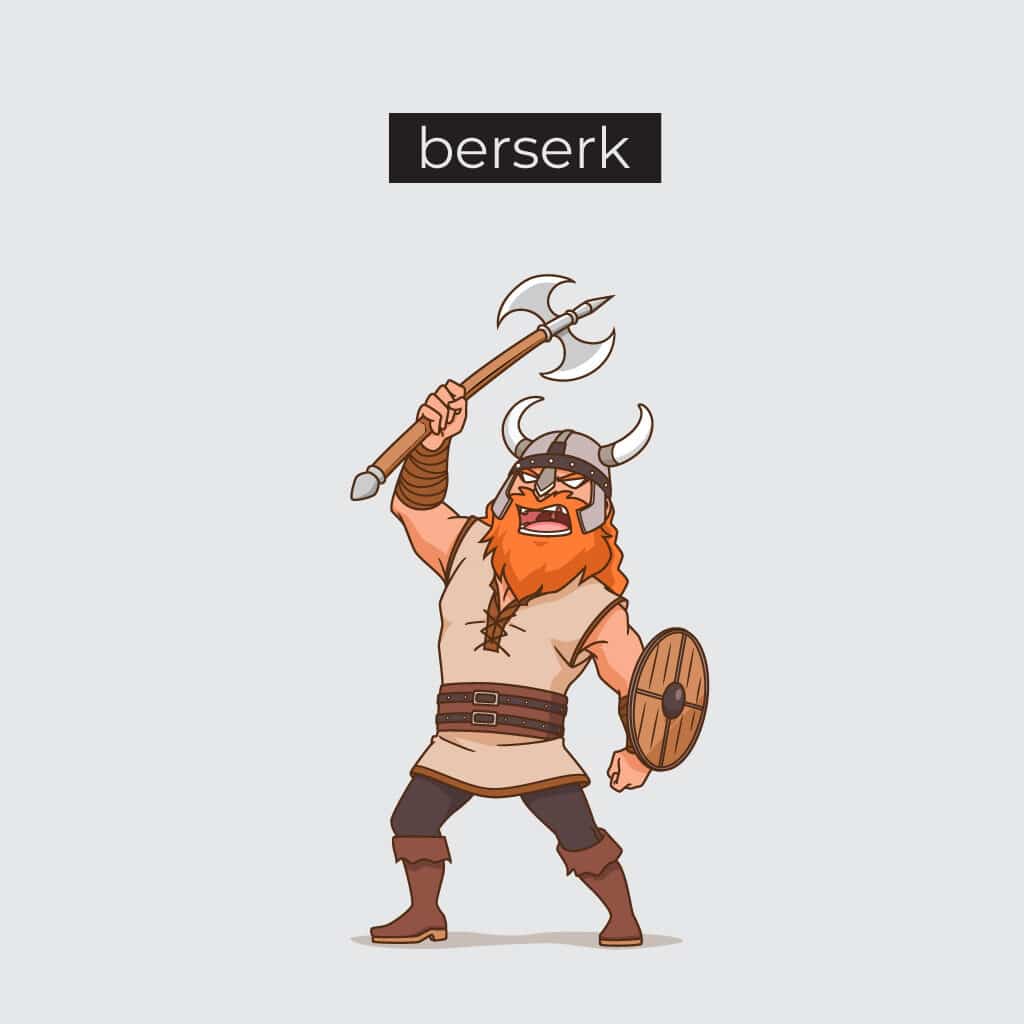
GRE Newsletter Subscribe
Enter your email address below and subscribe to our newsletter

Enter your email address below and subscribe to our newsletter

Hello folks, welcome to the 14th GRE Word List Blog. This series of blogs deals with Essential Words for the GRE and helps GRE aspirants bolster their GRE Verbal Preparation, and ace the GRE Verbal section. In this blog, we will explore a few English words adapted from other languages – i.e. Loanwords.
If you haven’t already, check out our other GRE Word List blogs.
Scandinavia is a term that typically refers to the countries of Sweden, Denmark, and Norway. So, this week’s words are loanwords from their respective languages to English.
This week’s loanwords are Maelstrom, Gauntlet/Take up the gauntlet, Quisling, Smorgasbord, and Berserk.
Part of Speech – noun
Definition –
1. a powerful whirlpool in the sea or a river.
2. a situation or state of confused movement or violent turmoil.
Loanwords’ Origins – from early modern Dutch (denoting a mythical whirlpool in the Arctic Ocean, west of Norway), from maalen ‘grind, whirl’ + stroom ‘stream’.
Synonyms – vortex, eddy, turbulence.
Usage – She was caught up in a maelstrom of emotions.

An eddy is a current of water running contrary to the main current, thus creating a circle/whirlpool of water. The Moskstraumen is one such whirlpool that has formed in the Norwegian Sea. It is one of the strongest whirlpools/maelstroms in the world. Edgar Allan Poe introduced the word maelstrom into English through his story ‘A Descent into the Maelström.’
Another popular maelstrom is the set of Naruto whirlpools, which are off the coast of Japan. The shape of the Naruto whirlpools inspired the cured fish dish Narutomaki surimi, a staple topping/accompaniment with most ramen dishes. This dish in turn inspired the character of Naruto Uzumaki (meaning whirlpool), in the world-famous manga/anime of the same name.
Part of Speech – noun/phrase
Definition –
1. a strong glove with a long, loose wrist.
2. accept a challenge.
Loanwords’ Origins – from Old French gantelet, diminutive of gant ‘glove’, of Germanic origin.
Synonyms – glove/compete.
Usage – In January 2021, he took up the gauntlet of getting a perfect GRE Score.
Part of Speech – noun
Definition – a traitor who collaborates with an enemy force occupying one’s country.
Loanwords’ Origins – Second World War: from the name of Major Vidkun Quisling, the Norwegian army officer and diplomat who ruled Norway on behalf of the German occupying forces (1940–45).
Synonyms – turncoat, Judas, Benedict Arnold.
Usage – As soon as the invaders crossed the borders, the quisling soldiers defected to their armies.
Vidkun Quisling was a Norwegian military officer, who first came to prominence as a collaborator of Nobel Peace Prize winner Fridtjof Nansen, an explorer who helped alleviate the Russian famine of 1921. He returned to Norway later and served as the Minister of Defense, representing the Farmers’ Party.
From there on, his karmic compass takes a deep dive southward, as he quit the Farmers’ Party to start a conservative outfit, the Nasjonal Samling. When Germany invaded Norway, he tried to stage a coup d’etat and failed. He was then appointed Prime Minister of Norway and headed the country alongside a Nazi leader. His pro-Nazi puppet govt. was filled with Nasjonal ministers, and even participated in the despicable Final Solution, the genocide of Jews.
Aptly, Quisling’s name became a byword for traitor, alongside names such as Judas, and Benedict Arnold. The Times, which introduced the word to the larger English-speaking audience asserted “To writers, the word Quisling is a gift from the gods. If they had been ordered to invent a new word for traitor… they could hardly have hit upon a more brilliant combination of letters. Aurally it contrives to suggest something at once slippery and tortuous.”
Part of Speech – noun
Definition – a wide range of something; a variety.
Loanwords’ Origins – Swedish, from smörgås ‘(slice of) bread and butter’ (from smör ‘butter’ + gås ‘goose, lump of butter’) + bord ‘table’.
Synonyms – medley, potpourri, assortment.
Usage – Wizako’s GRE Blogs contain a smorgasbord of GRE Words, trivia, and stories.

Smörgåsbord is a type of Scandinavian meal, originating in Sweden, served buffet-style with multiple hot and cold dishes of various foods on a table.
Some distinctly Swedish food items are –
Check out a more detailed list of Swedish cuisine and what they serve at smorgasbords and julbords here.
Part of Speech – adjective
Definition – out of control with anger or excitement; wild or frenzied.
Loanwords’ Origins – early 19th century (originally as a noun denoting an ancient Norse warrior who fought with wild or uncontrolled ferocity): from Old Norse berserkr (noun), from birn-, bjorn (bear) + serkr ‘coat’, also possibly from berr ‘bare’ (i.e. without armour).
Synonyms – maniacal, frenzied, frantic, delirious.
Usage – As soon as Jordan made the Buzzer Beater shot, the crowd went berserk.

Berserkers fought in a trance-like fury in battle and were seemingly impervious to minor damage when in fury. The fury state was called berserkergang (represent!) and would present with shivering and chattering of teeth.
When in fury, the berserker would have very little control of their own actions and tended to cut down everything in their path. This does play into the typical perceptions of Vikings as pillagers and raiders.
The bare-shirted part of the etymology is dubious – they’re crazy, but not crazy enough to fight with no armour, or indeed, clothes. The ‘bear-shirted’ variant is believed to be truer, as there are accounts of warriors who would wear a bearskin/cape when going to battle. There are wolf variants as well, called Úlfhéðnar, though the Old Norse people disliked and even feared wolves. There are those who claim that the Úlfhéðnar and their seemingly animal rage, and style of fighting led to the mythos that surrounds werewolves.
Norse, indeed!
Watch the video below or here to learn more about Scandinavian GRE Words!
Liked this GRE Scandinavian Loanwords Blog, and looking for other themed blogs to read?
Check them out here.
Check us out on our Social Media Handles!
We’ll be posting these Loanwords in Flashcard format there!
[…] words adapted from French i.e. Loanwords, in continuation to our last blog, where we looked at Scandinavian Loanwords.If you haven’t read that yet, check it out!You can find the other GRE Online Preparation Word […]